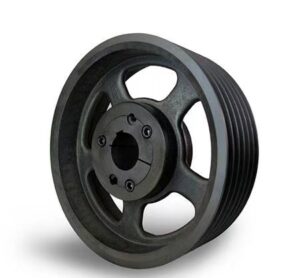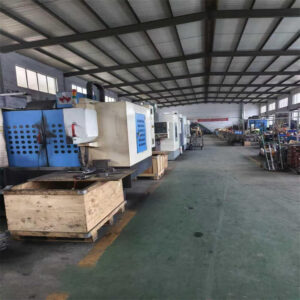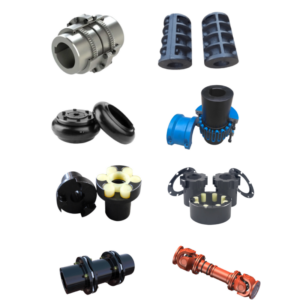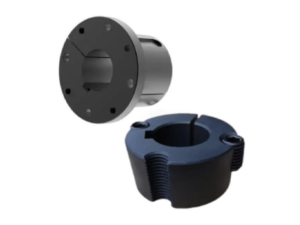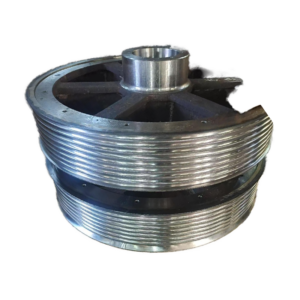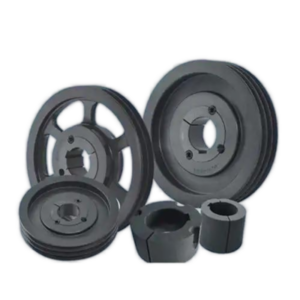1. Overview
The POLY V PULLEY, also known as a multi-ribbed pulley, is a key component in modern power transmission systems. It is designed to work in conjunction with a POLY V belt (multi-ribbed belt) and is widely used in automotive, household appliances, industrial machinery, and automation equipment. Its ribbed design allows for high-speed and high-power transmission with excellent efficiency and stability.
2. Structural Features
A POLY V pulley typically includes the following characteristics:
- Multiple Rib Grooves: Engineered according to standard profiles such as J, K, L, and M to match corresponding POLY V belts.
- High Concentricity: Precision machining ensures smooth rotation, reducing vibration and noise.
- Various Materials: Common materials include aluminum alloy, cast iron, and steel, selected based on application and cost considerations.
3. Advantages
- High Transmission Efficiency: The ribbed contact surface provides strong grip and minimal slippage, achieving efficiency up to 98%.
- Compact Design: Smaller size and lighter weight make it ideal for tight-space applications.
- Smooth Operation: Low noise and vibration levels are suitable for precision machinery.
- Durability: Long service life with minimal maintenance when used with quality POLY V belts.
- Multi-Axis Drive Capability: A single POLY V belt can drive multiple components, simplifying system design.
4. Applications
- Automotive Industry: Accessory drives for alternators, water pumps, air conditioning compressors, etc.
- Home Appliances: Washing machines, air conditioners, vacuum cleaners.
- Industrial Equipment: CNC machines, conveyors, packaging systems.
- Agricultural Machinery: Threshers, harvesters, and other small power systems.
5. Selection Guidelines
When selecting a POLY V pulley, consider the following factors:
- Required transmission power and speed
- Space constraints and mounting conditions
- Environmental factors (temperature, humidity, corrosive exposure)
- Specifications and length of the POLY V belt to be used

